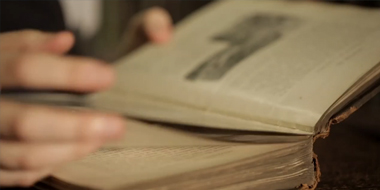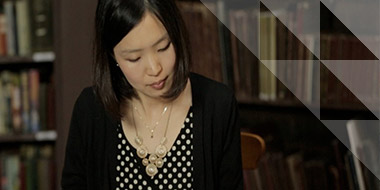-
Study
-
Quick Links
- Open Days & Events
- Real-World Learning
- Unlock Your Potential
- Tuition Fees, Funding & Scholarships
- Real World Learning
-
Undergraduate
- Application Guides
- UCAS Exhibitions
- Extended Degrees
- School & College Outreach
- Information for Parents
-
Postgraduate
- Application Guide
- Postgraduate Research Degrees
- Flexible Learning
- Change Direction
- Register your Interest
-
Student Life
- Students' Union
- The Hub - Student Blog
- Accommodation
- Northumbria Sport
- Support for Students
-
Learning Experience
- Real-World Learning
- Research-enriched learning
- Graduate Futures
- The Business Clinic
- Study Abroad
-
-
International
International
Northumbria’s global footprint touches every continent across the world, through our global partnerships across 17 institutions in 10 countries, to our 277,000 strong alumni community and 150 recruitment partners – we prepare our students for the challenges of tomorrow. Discover more about how to join Northumbria’s global family or our partnerships.
View our Global Footprint-
Quick Links
- Course Search
- Undergraduate Study
- Postgraduate Study
- Information for Parents
- London Campus
- Northumbria Pathway
- Cost of Living
- Sign up for Information
-
International Students
- Information for International Students
- Northumbria and your Country
- International Events
- Application Guide
- Entry Requirements and Education Country Agents
- Global Offices and Regional Teams
- English Requirements
- English Language Centre
- International student support
- Cost of Living
-
International Fees and Funding
- International Undergraduate Fees
- International Undergraduate Funding
- International Masters Fees
- International Masters Funding
- International Postgraduate Research Fees
- International Postgraduate Research Funding
- Useful Financial Information
-
International Partners
- Agent and Representatives Network
- Global Partnerships
- Global Community
-
International Mobility
- Study Abroad
- Information for Incoming Exchange Students
-
-
Business
Business
The world is changing faster than ever before. The future is there to be won by organisations who find ways to turn today's possibilities into tomorrows competitive edge. In a connected world, collaboration can be the key to success.
More on our Business Services-
Business Quick Links
- Contact Us
- Business Events
- Research and Consultancy
- Education and Training
- Workforce Development Courses
- Join our mailing list
-
Education and Training
- Higher and Degree Apprenticeships
- Continuing Professional Development
- Apprenticeship Fees & Funding
- Apprenticeship FAQs
- How to Develop an Apprentice
- Apprenticeship Vacancies
- Enquire Now
-
Research and Consultancy
- Space
- Energy
- AI Futures
- CHASE: Centre for Health and Social Equity
- NESST
-
-
Research
Research
Northumbria is a research-rich, business-focused, professional university with a global reputation for academic quality. We conduct ground-breaking research that is responsive to the science & technology, health & well being, economic and social and arts & cultural needs for the communities
Discover more about our Research-
Quick Links
- Research Peaks of Excellence
- Academic Departments
- Research Staff
- Postgraduate Research Studentships
- Research Events
-
Research at Northumbria
- Interdisciplinary Research Themes
- Research Impact
- REF
- Partners and Collaborators
-
Support for Researchers
- Research and Innovation Services Staff
- Researcher Development and Training
- Ethics, Integrity, and Trusted Research
- University Library
- Vice Chancellors Fellows
-
Research Degrees
- Postgraduate Research Overview
- Doctoral Training Partnerships and Centres
- Academic Departments
-
Research Culture
- Research Culture
- Research Culture Action Plan
- Concordats and Commitments
-
-
About Us
-
About Northumbria
- Our Strategy
- Our Staff
- Our Schools
- Place and Partnerships
- Leadership & Governance
- University Services
- Northumbria History
- Contact us
- Online Shop
-
-
Alumni
Alumni
Northumbria University is renowned for the calibre of its business-ready graduates. Our alumni network has over 253,000 graduates based in 178 countries worldwide in a range of sectors, our alumni are making a real impact on the world.
Our Alumni - Work For Us
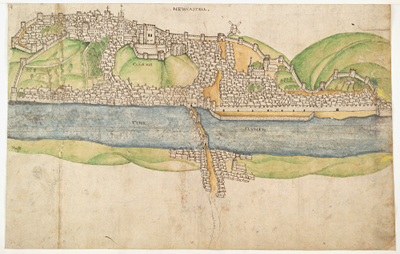
The Medieval and Early Modern Studies research group is highly interdisciplinary, bringing together researchers in History, English Literature, Art and Music who work on Britain, Europe and the wider world in the period before 1700. Research in the group focuses on four key strands: Religious Cultures, Appropriation and Authority, Music and Sound, and Royal Studies.
For more information, please contact the research group lead: Dr Katherine Butler.
Religious Cultures
This research strand promotes the comparative study of religious cultures across medieval and early modern Europe. It supports a lively variety of interdisciplinary research including the changing institutional, material and spatial contexts of religious life, theology and liturgical thinking, textual and artistic representations, confessional relations, parish communities, domestic worship and broader socio-political and cultural perspectives.
Appropriation and Authority
This research strand supports interdisciplinary research into medieval and early modern texts, textiles and other cultural products, examining their appropriations across time and space and reflecting upon their relationship with questions of authority and authorship.
Music and Sound
This research strand focuses on the musical culture of sixteenth and seventeenth-century England and English musicians abroad, and encompasses ballads and popular song as well as music associated with court and the aristocracy. Music is considered in relation to gender, religion, philosophy and politics. Members of MEMS also have interests in manuscript studies and early music printing, as well as the challenges of editing music of this period.
Royal Studies
This research strand focuses on aspects of monarchical rule and court studies in the early modern period, including royal ceremony in urban and court settings, queenship and kingship, court culture including material culture, the literary and historical reputations of monarchs, and political history of monarchies.
Current Project Grants
David Smith is currently PI for the AHRC-funded network, ‘Digital directions for collected editions: keyboard music by British musicians before c.1700’.
Felicia Gottmann is PI of the UKRI FLF Project ‘Migration, Adaptation, Innovation 1500-1800’.
Brycchan Carey has a British Academy Wolfson Professorship for his project ‘The Parish Revolution: Parochial Origins of Global Conservationism’
Major Publications
Members of the Medieval and Early Modern Studies group have published major studies on:
- Royal courts and urban culture in late medieval France
- Queenship in early modern France and Poland
- Colonisation, Imperial Monarchy and the Tudor occupation of Boulogne
- The musical politics of the Elizabethan court
- The history of the viola d’amore
- Shakespeare and popular music
- Changes to the expression of negation in early English
- Christian spirituality in fifteenth-century Spain
- The Virgin Mary in Medieval Hispanic literature
- The migration of Irish women to Spain in the sixteenth and seventeenth centuries
- Urban and environmental history of early modern Britain
- Global trade and the development of economic liberalism in early modern France
External Events and Partnerships
The group have led a range of events on early modern theatre including conferences on Territory, Politics and Performance in Tudor England, led by Paul Frazer (2017), and Offensive Shakespeare, led by Monika Smialkowska and sponsored by the British Shakespeare Association (2017). Meanwhile, in 2019 Adam Hansen took his Shakespeare Club reading group on the road, to read Shakespeare across the North East, from St Mary’s Lighthouse to the People’s Kitchen.
Also in 2019, Katarzyna Kosior, Katherine Butler and Chloe Renwick organised international symposium on ‘Sex and Gender Politics’, hosted by Northumbria’s Institute of the Humanities, and Richard O’Brien organised the ‘Tudor Cinema Club’, an outreach event including interactive screening of film clips, readings, and discussion in the beautiful Tudor surroundings of Selly Manor.
In 2020, a Being Human Festival event ‘Sex Education Zine Cafe’, co-organised by then-member Kit Heyam, engaged members of the public in the discussion of how early modern readers accessed knowledge about sex and how this might inform contemporary sex education.
Lesley Twomey leads Northumbria’s partnership with Newcastle Cathedral, which has resulted in joint events and walking tours, for example on ‘Plague and War in Newcastle’.
Group members were also involved in the Durham-Newcastle Colloquium on Medieval and Golden Age Hispanic Studies which met in 2022.
Membership
Postgraduate Researchers:
Sandra Elliott, Humility and Authority in the Lives of English Saints in The Golden Legend English Tradition from Manuscript to Print
Ben Hebbert, Musical Instruments as Materiality in the English Renaissance Court and noble culture
Sebastian Jørgensen, Repercussio: Mapping the Art of ‘Repeating’ in the Sixteenth Century
A blog on all manner of research, publications, lectures, conferences, symposia, and more from Northumbria University's History and American Studies programmes.
Our students learn from the best – inspirational academic staff with a genuine passion for their subject. Our courses are at the forefront of current knowledge and practice and are shaped by world-leading and internationally excellent research.
The Department of Humanities offers a number of undergraduate and postgraduate courses. By studying at Northumbria you will become part of a passionate and creative community.
Latest News and Features
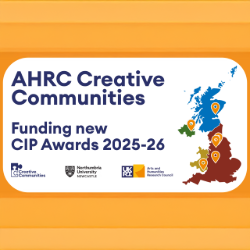
Mission Research: UKRI Community Innovation Practitioner Awards Scaled to Empower Place-Based Innovation Across All 4 Nations
The Creative Communities programme, funded by the UKRI Arts and Humanities Research Council…
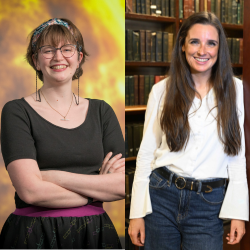
Northumbria researchers announced as winners of Future Leaders Fellowships
Two talented researchers from Northumbria University have been awarded a share of £120 million…

Northumbria expands results day support for students
Northumbria University is expanding and enhancing the support it provides to students receiving…
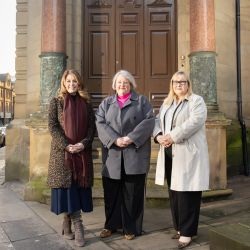
Mayor backs new Centre for Writing to become North East creative powerhouse
Plans to open a new national centre for writing will take a big step forward next week as North…

North East universities to host international Medieval and Renaissance music conference
An international conference celebrating the music of the medieval and Renaissance periods will…

Northumbria wins recognition for expanding access to higher education
Northumbria University has been named Higher Education Institution of the Year at a prestigious…
Upcoming events

V Durham Northumbria Colloquium for Medieval and Golden Age Studies
Northumbria University


